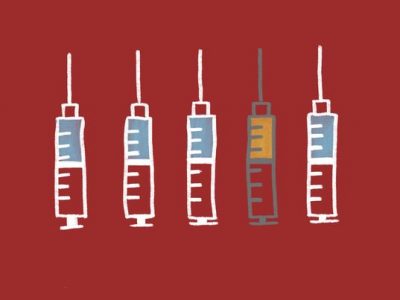Boston University has recently moved forward with its Phase Two COVID-19 vaccinations. BU, along with other universities across the country and in Massachusetts — such as Northeastern University and Tufts University — are taking steps to vaccinate their campus community.
For many reasons, providing vaccinations to members of private institutions and universities is pertinent. In college towns such as Boston — where college students make up around 20 percent of the population during the Fall and Spring — limiting the transmission of the virus on campus would greatly reduce the risk the entire city faces.
And BU’s vaccination program is reserved solely for its community, meaning if there’s a set number of vaccines put aside for the University, it may be easier for eligible students and faculty to get vaccinated on campus than off.
The problem now is Massachusetts’ vaccine distribution and supply. The BU Medical Advisory Group has reported setbacks due to a limited number of doses.
But compared to the rest of the nation, Massachusetts has been faring OK. As of Thursday, Massachusetts was ranked No. 22 in the United States by its percentage of administered vaccines.
As of Thursday, 78.6 percent of distributed vaccines have been administered, totalling 454,472 fully inoculated residents, according to data from the Massachusetts Immunization Information System.

Despite the consistent roughly 20 percent of vaccines that remain unadministered, residents have been told there are no available time slots and have been put in digital waiting rooms for hours and even days. People are frustrated by the delays, inefficiencies and slow pace of the vaccine administration process.
BU is doing the best it can, but its hands are tied by the state. With its comprehensive vaccine information page and extensive infrastructure for COVID-19 testing already in place, the University has the potential for great success with vaccinations, given the right access to supplies.
There is an argument, however, that BU shouldn’t be receiving vaccines when there are more prioritized communities in need.
The reality is BU isn’t ordering too many vaccines or taking away from the total state supply. In fact, the reason for BU’s limited supplies is because some hospitals have over-ordered.
This means more local centers such as Dartmouth High School — which is no longer receiving shipments — could be cut off from distribution plans. Or, similar to BU, centers could receive fewer vaccines than expected.
Though we need and would benefit from BU-administered vaccines, it is true that other communities need vaccines as well — maybe even more so.
As some Boston Public Schools reopen Monday, teachers who are required to work in person deserve and must be allowed to receive vaccinations. Currently, they’ve been bumped down in the Phase Two timeline.
BU professors are lucky enough to have a choice between teaching remotely, in person or through a hybrid model. The Learn from Anywhere program allows flexibility and greater safety for everyone involved — in that sense, BU is nowhere near the most urgent community right now.
But it shouldn’t have to be an “either or” situation.
After the vaccine is released to the general public, herd immunity may only be achievable if businesses and private institutions enforce their own immunization policies. Though BU is currently not mandating COVID-19 vaccinations, the University and state should require student immunization for the virus just as they do with tuberculosis and other diseases.
It’s understandable that the government was unprepared for the crisis and vaccine supplies are low nationwide. It’s up to Pfizer-BioNTech, Moderna and the federal government to increase supply to meet the demands. However, the state should re-evaluate its distribution plan so it is more equitable for all.
In the meantime, BU can only wait for its requested vaccines to continue with its plans.

















































































































Alumni • Feb 26, 2021 at 10:06 am
It is only emergency approval, therefore, legally cannot be mandated. FYI